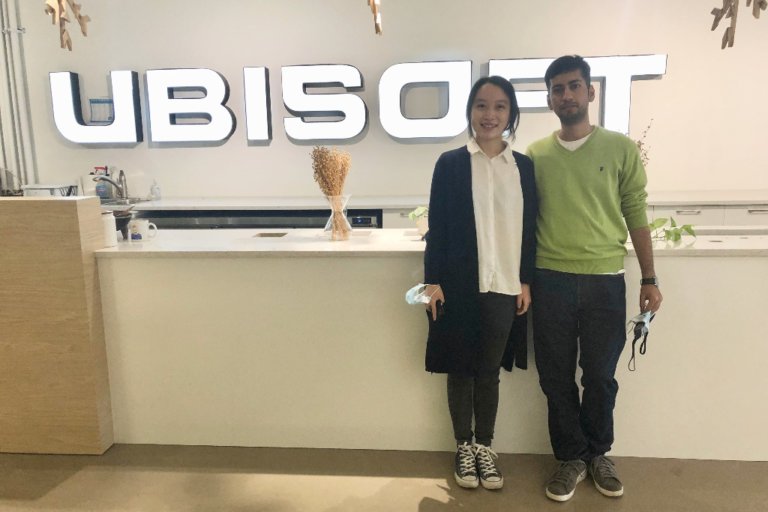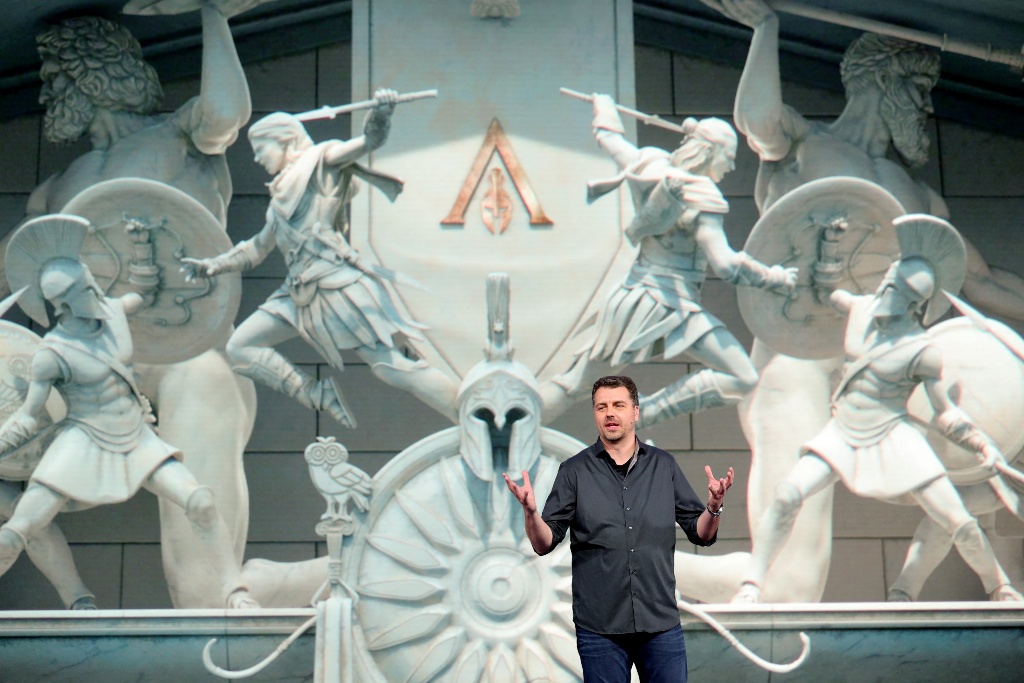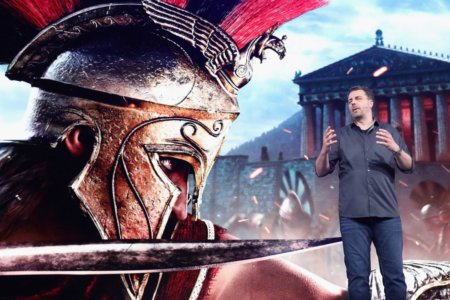
If history is the only true teacher, then Assassin’s Creed could soon be the best school to learn about life in Ancient Egypt and how the crusaders crushed the enemies of the Latin Church.
In Assassin’s Creed, players battle an endless war between the Assassins — who fight for the freedom of all humanity — and the Templars, who believe peace can only be achieved when everyone is under their thumb.
Missions come first — although players can relive a historical era through a virtual reality machine known as the Animus. With the Discovery Tour series, history is now front and centre.
This platform offers an immersive way to study ancient civilisations with voice-over explanations on artifacts like pottery and farm tools. Picture baking bread the primitive way with coals or tilling a field.
According to Ubisoft, they collaborated with historians and experts to ensure that the Discovery Tour series (“Discovery Tour: Viking Age”, “Discovery Tour: Ancient Greece”, and “Discovery Tour: Ancient Egpyt”) is accurate and adapted for educational purposes. Expect no violent content.
Ubisoft also worked with Chu Xu and Robin Sharma, members of McGill’s Technology, Learning, and Cognition Lab (TLC) to curate curriculum guides for teachers. The PhD candidates at McGill University are helping teachers create lesson plans and use the platform in their classes.
We caught up with them to gain insights into their experience working on the project and how video games can be both educational and fun:

Assassin’s Creed Odyssey sees players assume the role of Alexios or Kassandra, mercenaries who embark on an odyssey to uncover the secrets of their past and change the fate of Ancient Greece. Source: Neilson Barnard/Getty Images North America/Getty Images/AFP
A passion to gamify learning
Growing up, Xu and Sharma loved playing multiplayer adventure games with engaging storylines. Naturally, they are acquainted with the franchise, so much so that it built their passion for game-based learning.
“I pursued an honours degree in mathematics and did my master’s degree in mathematics education. During my master’s programme, I was introduced to educational research and was interested in the area,” says Sharma who is from India.
“I worked at the UNESCO Mahatma Gandhi Institute of Education for Peace and Sustainable Development for three years and managed a programme focusing on different aspects of game-based learning.”
His colleague, Xu, took a different path towards gaming. As an undergraduate, she majored in psychology and continued to study cognitive psychology for her master’s degree. Through this programme, she used games to assess an individual’s cognitive ability.
“Once I discovered that game-based learning is an academic area, I have decided to pursue this direction,” she says.

Chu Xu is a PhD candidate in the Department of Educational and Counselling Psychology (ECP), Learning Sciences program at McGill University. Source: Chu Xu
Assassin’s Creed Discovery Tour series: How it came about
It all started with the chance to work with McGill Associate Professor and Learning Sciences expert Dr. Adam Dubé at McGill’s TLC, which studies educational technology to develop learning tools that are effective and efficient. “The Educational and Counselling Psychology department had a learning science programme that focused on various educational technologies,” says Xu from Chin.
“One of Dr. Adam Dubé’s research directions is “games for learning,” and he also has a background in mathematical cognition — which seemed like a perfect match for my previous background and future interests.”
Dr. Dubé pioneered the Discovery Tour series project with Ubisoft, creating curriculum guides for teachers and students to relive the rich historical and cultural settings of the “Assassin’s Creed” franchise.
“Through different game modes like guided tours and story-based quests, players can discover these areas at their own pace or embark on guided tours and stories by historians and experts,” Sharma explains.
“Students can interact with historical figures and objects, participate in activities hosted by the local community, and view real-world images of historical relics. These experiences are likely to support deeper learning and retention of the content.”
Both Xu and Sharma previously worked on the digital curriculum guides for the Ancient Egypt and Ancient Greece iterations of Ubisoft’s Discovery Tour series. The team’s latest venture, “Discovery Tour: Viking Age,” takes place in the “Assassin’s Creed” Valhalla universe.

Robin Sharma is a a PhD student in the Learning Sciences programme. He played “Assassin’s Creed: Black Flag” when he was in high school. Source: Robin Sharma
What it was like to work on the Discovery Tour series as international students
With Dr. Dubé as their academic supervisor, Xu and Sharma were in good hands. “His expertise, guidance, and support were fundamental and key for creating these guides,” says Sharma.
“We adopted a research-based approach to the design of the guides supervised by Dr. Dubé. At TLC, we also received access to all technological infrastructure required for the project,” says Sharma.
Xu agreed. “Robin and I are international students. English is not our first language,” she says. “However, our lab colleagues tremendously supported us by reviewing and editing the original draft.”
It was a challenge to dissect the vast amount of content into bite-size easy-to-learn components. This was during the height of the COVID-19 pandemic too, which meant collaborating across different continents and time zones.
Since neither of them has cultural ties to the historical periods referenced in the Discovery Tour series, Xu shares that this helped her to understand the process of learning a new culture or tradition for the first time. In this, they can tailor their guides to help new users navigate through the experience.

TLC investigates how can technology, like games, amplify the learning process. . Source: Daniel Slim/AFP
What’s next after Assassin’s Creed Discovery Tour?
Since Ubisoft launched the Discovery Tour series for “Assassin’s Creed: Origins,” students like Xu and Sharma have contributed significantly to the success of this series. “We will continue to test whether this curriculum guide can help teachers adopt the games into their classrooms through empirical studies,” she shares.
“We do not know whether there will be more curriculum guides for the Discovery Tour series since the project is a collaboration between Ubisoft and Dr. Dubé’s lab. There is also a limit on the projects we can take on as PhD students. For now, I can only hope for new possibilities.”
Despite having little experience in the field, Xu and Sharma are proof that you can still succeed. “Designing learning experiences and creating curriculum guides around existing games is a niche field,” says Sharma.
“If you want to pursue your research in this field, seek the right mentor and team as their support will be crucial.”










